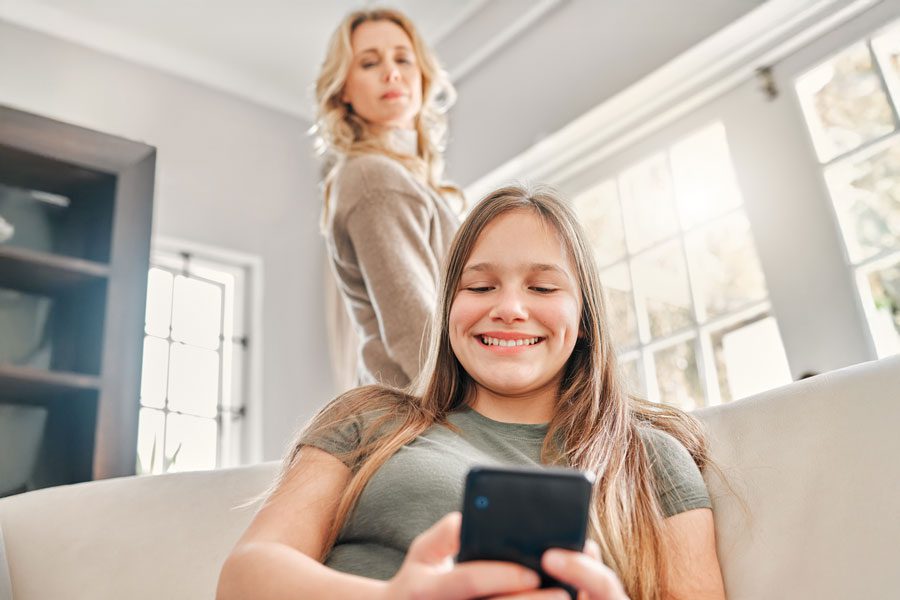Consider the following story as it relates to this week’s topic. It was a sunny Saturday afternoon when his parents asked him to join them for a few errands, encouraging him to get out of the house for a bit. Their only rule: all electronics had to stay at home. The moment he heard this, the teenager began to panic. How will my friends reach me? I won’t be able to respond until much later! Despite his rising anxiety, his parents calmly reassured him that everything would be fine—that some time away from screens might actually help him reconnect. But for the teenager, the anxiety was overwhelming, teetering on the edge of a real panic attack—a reaction that, unfortunately, is not uncommon these days.
In our hyper-connected world, screens are everywhere — from smartphones and tablets to laptops and TVs. They’re essential for work, school, entertainment, and even socializing. But as screen time continues to climb, so do concerns about its impact on mental health. This raises an important question: how much screen time is too much?
The Link Between Screen Time and Mental Health
We continue to see an increasing connection between excessive screen time and mental health challenges such as anxiety, depression, sleep disorders, and decreased emotional well-being. Particularly in children, teens, and young adults, heavy screen use has been associated with lower self-esteem, higher rates of loneliness, and increased exposure to cyberbullying.
However, the relationship isn’t entirely black and white. Not all screen time is created equal — scrolling endlessly through social media is different from attending a virtual class or video calling a loved one. The type, purpose, and context of screen use matter greatly.
Signs Your Child Might Be Getting Too Much Screen Time
While there’s no universal “maximum” amount of screen time that applies to everyone, there are warning signs that it might be taking a toll on your child’s mental health:
- Feeling anxious or stressed when they can’t access your device
- Sleep disturbances, such as difficulty falling or staying asleep
- Eye strain and headaches
- Reduced physical activity, leading to lethargy or weight gain
- Less real-world interaction with friends, family, or peers
- Mood swings, irritability, or feeling overwhelmed after screen sessions
If you recognize several of these symptoms, it might be time to reconsider your child’s screen habits.
How Much Screen Time Is Too Much?
Here are some general guidelines:
- For children under 2 years: Little to no screen time, other than video chatting.
- For children aged 2 to 5 years: No more than one hour per day of high-quality programming.
- For older children and teens: Screen time should be balanced with sleep, physical activity, and other healthy behaviors.
Ultimately, it’s less about the strict number of hours and more about how screen use fits into their overall lifestyle.
Tips for Managing Screen Time Mindfully
- Set boundaries. Use apps that monitor and limit your daily screen usage.
- Create tech-free zones. Make bedrooms, dining areas, and family gatherings device-free spaces.
- Prioritize real-world activities. Make time each day for exercise, hobbies, and face-to-face conversations.
- Be intentional. Encourage your child to use screens to connect, learn, or create — not just to passively consume.
- Take regular breaks. Follow the 20-20-20 rule: every 20 minutes, look at something 20 feet away for at least 20 seconds.
Creating Balance
Technology isn’t the enemy — it’s how we use it that matters. Screens offer incredible opportunities for learning, connection, and entertainment. But when screen time displaces essential activities like sleep, exercise, and face-to-face interaction, it can harm everyones mental health.
By being mindful about our digital habits, setting healthy boundaries, and prioritizing our well-being, we can enjoy the benefits of technology without letting it control our lives. To learn more about creating balance and supporting your family’s mental health, reach out to our licensed psychologists and Tampa counselors today.


